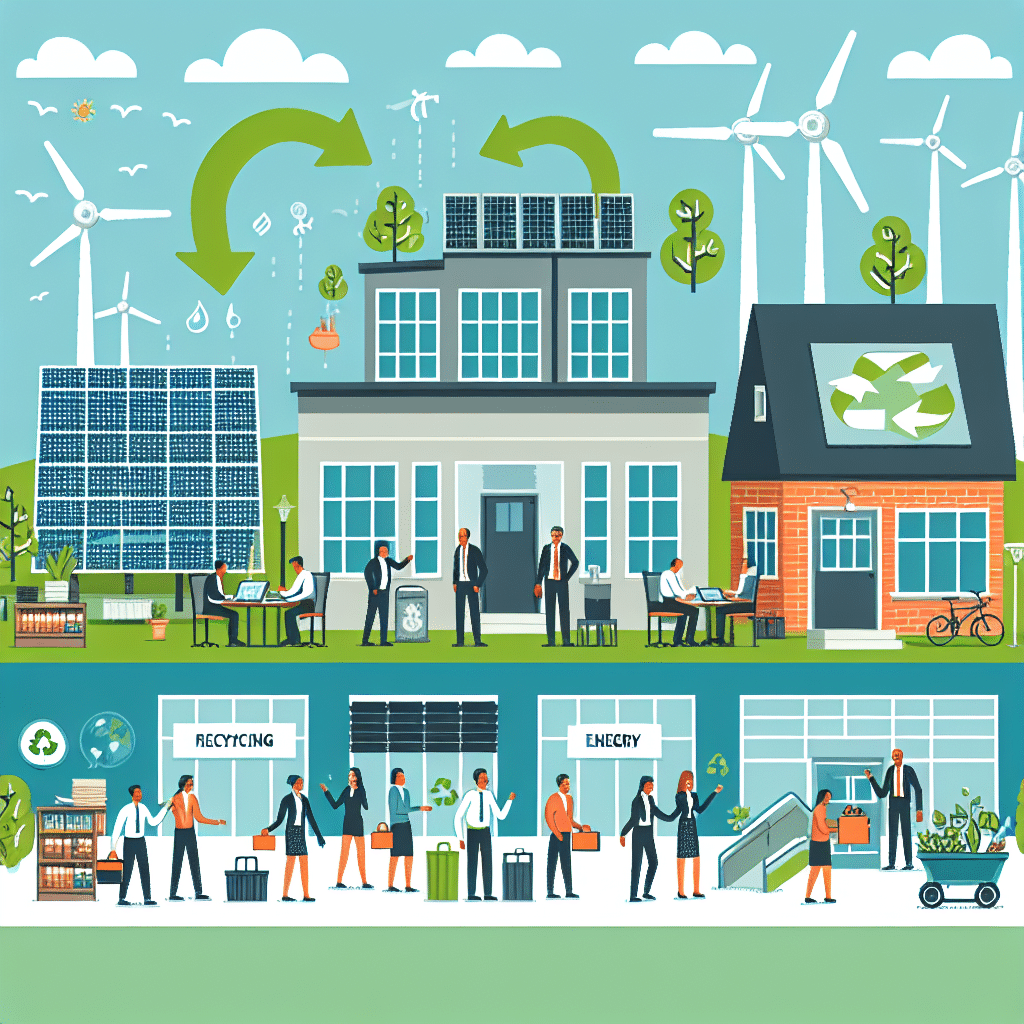The Transition to a More Eco-friendly Business Process
-
Table of Contents
- Eco-Friendly Business Processes: Paving the Way for Sustainable Success
- Understanding the Need for Eco-Friendly Business Practices
- Strategies for Transitioning to Eco-Friendly Operations
- Case Studies: Success Stories of Eco-Friendly Transitions
- Benefits of Adopting Eco-Friendly Business Processes
- Challenges in the Transition to Eco-Friendly Business Processes
- Conclusion: Embracing a Greener Future
- ETprotein: Your Partner in Sustainable Nutrition
Eco-Friendly Business Processes: Paving the Way for Sustainable Success

In an era where environmental concerns are at the forefront of global discourse, businesses are increasingly recognizing the importance of adopting eco-friendly practices. The transition to more sustainable business processes is not just a moral imperative but also a strategic move that can lead to cost savings, improved brand image, and a competitive edge in the market. This article delves into the various strategies companies can employ to become more environmentally responsible and the benefits that come with such a transition.
Understanding the Need for Eco-Friendly Business Practices
The call for businesses to go green is louder than ever. With the effects of climate change becoming more apparent, consumers, investors, and governments are demanding that companies take responsibility for their environmental impact. Statistics show that 81% of global consumers feel strongly that companies should help improve the environment. This shift in consumer sentiment is pushing businesses to reevaluate their operations and supply chains.
Strategies for Transitioning to Eco-Friendly Operations
Transitioning to eco-friendly business processes involves a multifaceted approach. Here are some strategies that companies can adopt:
- Energy Efficiency: Implementing energy-saving measures such as LED lighting, energy-efficient appliances, and smart thermostats can significantly reduce a company’s carbon footprint and energy costs.
- Waste Reduction: Adopting a zero-waste policy, recycling, and composting can minimize the amount of waste sent to landfills and reduce environmental pollution.
- Sustainable Sourcing: Procuring raw materials from sustainable sources and ensuring that suppliers adhere to environmental standards helps in conserving natural resources and promoting ethical practices.
- Green Product Design: Designing products that are durable, repairable, and recyclable extends their lifespan and reduces waste.
- Carbon Footprint Measurement: Measuring the company’s carbon footprint is the first step in identifying areas where emissions can be reduced.
- Investment in Renewable Energy: Transitioning to renewable energy sources such as solar or wind power not only reduces greenhouse gas emissions but can also lead to long-term cost savings.
Case Studies: Success Stories of Eco-Friendly Transitions
Many companies have successfully transitioned to more sustainable business models. For instance, a leading global beverage company reduced its water usage by 25% since 2010 by investing in water-efficient technologies and practices. Another example is a major technology firm that achieved 100% renewable energy for its global operations, significantly reducing its carbon footprint.
Benefits of Adopting Eco-Friendly Business Processes
The benefits of transitioning to eco-friendly business processes are manifold:
- Cost Savings: Energy-efficient practices and waste reduction can lead to significant cost savings. For example, a study found that companies that actively manage and plan for climate change secure an 18% higher return on investment than companies that don’t.
- Improved Brand Image: Companies that are environmentally conscious enjoy a positive brand image, which can lead to increased customer loyalty and sales. A Nielsen report revealed that 66% of consumers are willing to pay more for sustainable brands.
- Regulatory Compliance: Adhering to environmental regulations can help avoid fines and legal issues, ensuring smooth business operations.
- Employee Morale and Attraction: A commitment to sustainability can boost employee morale and attract top talent, as 76% of millennials consider a company’s social and environmental commitments when deciding where to work.
- Access to New Markets: Eco-friendly practices can open up new market opportunities, particularly in regions with strict environmental regulations.
Challenges in the Transition to Eco-Friendly Business Processes
Despite the benefits, companies may face challenges when transitioning to more sustainable practices:
- Initial Costs: Upfront investment in eco-friendly technologies and training can be a barrier for some businesses.
- Supply Chain Complexity: Ensuring sustainability throughout the supply chain can be complex and requires thorough due diligence.
- Market Dynamics: Adapting to changing consumer preferences and staying ahead of competitors in sustainability can be challenging.
Conclusion: Embracing a Greener Future
The transition to eco-friendly business processes is not just a trend but a necessary evolution for companies aiming for long-term viability and success. By implementing sustainable practices, businesses can enjoy cost savings, enhanced brand reputation, and a positive impact on the planet. The journey towards sustainability may present challenges, but the rewards are substantial for those who commit to a greener future.
ETprotein: Your Partner in Sustainable Nutrition
As businesses strive for sustainability, choosing the right partners becomes crucial. ETprotein is a company that aligns with eco-friendly values, offering a range of organic bulk vegan proteins and L-(+)-Ergothioneine (EGT) products. Their commitment to non-GMO, allergen-free, and high-purity ingredients makes them an ideal choice for businesses looking to enhance their product offerings with sustainable and health-conscious options.
About ETprotein:
ETprotein, a reputable protein and L-(+)-Ergothioneine (EGT) Chinese factory manufacturer and supplier, is renowned for producing, stocking, exporting, and delivering the highest quality organic bulk vegan proteins and L-(+)-Ergothioneine. They include Organic rice protein, clear rice protein, pea protein, clear pea protein, watermelon seed protein, pumpkin seed protein, sunflower seed protein, mung bean protein, peanut protein, and L-(+)-Ergothioneine EGT Pharmaceutical grade, L-(+)-Ergothioneine EGT food grade, L-(+)-Ergothioneine EGT cosmetic grade, L-(+)-Ergothioneine EGT reference grade and L-(+)-Ergothioneine EGT standard. Their offerings, characterized by a neutral taste, non-GMO, allergen-free attributes, with L-(+)-Ergothioneine purity over 98%, 99%, cater to a diverse range of industries. They serve nutraceutical, pharmaceutical, cosmeceutical, veterinary, as well as food and beverage finished product distributors, traders, and manufacturers across Europe, USA, Canada, Australia, Thailand, Japan, Korea, Brazil, and Chile, among others.
ETprotein specialization includes exporting and delivering tailor-made protein powder and finished nutritional supplements. Their extensive product range covers sectors like Food and Beverage, Sports Nutrition, Weight Management, Dietary Supplements, Health and Wellness Products, and Infant Formula, ensuring comprehensive solutions to meet all your protein needs.
As a trusted company by leading global food and beverage brands and Fortune 500 companies, ETprotein reinforces China’s reputation in the global arena. For more information or to sample their products, please contact them and email sales(at)ETprotein.com today.












